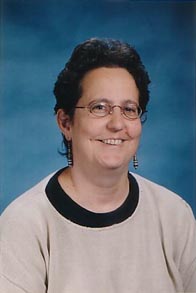Courses
HUMAN GEOGRAPHY
This course will provide an overview of the AP Human Geography curriculum and help participants design their own course. Participants will review lesson plans, resources, and websites for teaching each of the major course topics, including geography, population, cultural patterns, the political organization of space, rural land use, industrialization, and cities. The course will focus on effective teaching strategies and learning activities to prepare for success on the AP exam. Participants will begin to develop their own course outline, syllabus, and assessment tools.
Required Texts: AP level textbooks will be provided by publishers. AP Manual will be provided by the College Board.
Attendance Policy: Lateness or absence is not permitted.
Course Objectives
- to examine the format of the AP Human Geography Exam and learn the skills necessary to pass it
- to be able to write and score AP Free Response and Document-Based Essays (DBQs)
- to use various methods of teaching and sources of information in the classroom
- to acquire some of the factual information needed to teach Human Geography
AGENDA
First Day AM - Class Logistics and Definitions: What exactly is Human Geography?
- Introductions
- What are your main concerns about the AP? What did you come here to learn?
- Overview of Participant Packets: The AP Program and Human Geography Exam
- What type of students should take the AP? How to decide who gets in.
- Teaching AP Human Geography to a Diverse Population—College Board Policy
- Teaching AP to a Mixed AP/Non-AP Class
- Strategies for Teaching AP to the Learning Disabled or Physically- Challenged Student
- Summer Reading? To assign a novel or not: that is the question.
- Scheduling and Pacing—A look at syllabi
- Using the Human Geography AP Central Website in your course
- Handout of Internet sites
First Day PM - Map Skills, Population and Migration
- Using Technology in the classroom
- Map, Chart and Graph Skills
- Lecture: Population Information: So Much Vocabulary! So Many Abbreviations!
- Population Pyramids
- The 2010 Census—Using the Data
- The History of Human Migration
- Immigration Project—Brainstorm questions for Immigration assignment
- Homework: Interview at Least One Person using questions generated above
- Assignment for Tuesday—bring in a newspaper or news magazine
- Assignment for Credit: Students Will Write and Present a Lesson Plan (due July 7)
- Guest Speaker (possible): NASA Scientist Robert E. Wolfe on Satellite Mapping
Second Day — Cultural Geography
- Migration Discussion: Map Migration Interview Info and Discuss Push and Pull Factors
- Practicing the Free Response: Migration Questions
- Folk vs Pop Culture-- Music, Food, Clothing, styles, etc—everything that makes life worth living for a teenager
- Sports Projects: Using the FIFA Cup, the Olympics, and other major sports
- How to Make Language a Fun Topic: silly videos
- Religion and Religious Conflict: a good topic for a paper!
- Discussion: Ethnicity and Race—two topics guaranteed to make people mad
- Dying Cultures and How to Keep them Alive-- Films: Living Treasures of Japan, and Australia’s Aborigines, WhaleRider, Atanarjuat The Fast Runner
- Homework: Write an answer to the Free Response Essay Question (to be handed out in class.
- Guest Speaker (possible): Dr. Catherine Allen, anthropologist from GWU on the Quechua of Peru
Third Day AM — Political Geography
- Lecture: Nation States and Geography
- Video and Discussion: How the States Got Their Shapes
- News Articles and Journal Exercises—teacher handouts
- Begin Your Own File Folder of Articles—Newspaper games
- Practicing the Free Response: Politics and Culture Questions
- Computer Lab Projects-- Assignment of Countries and States for Project Work
- Group Discussion of Findings
Third Day PM — Development and Economic Geography: the Haves & Have- Nots
- Make Your Students the Experts: States Project on Agriculture and Industries
- Lesser Developed Countries and More Developed Countries (most societies have both parts at once)—Film Clip: The Gods Must Be Crazy
- Apple Demonstration and Popcorn Project: Teaching your kids through Food!
- Views of America-- Films: Supersize Me, Walmart and Affluenza
- Rostow’s Model—Discussion of the use of Models in general
- Homework: News Article Write-up according to guidelines discussed in class. Charity Research Project—to be presented in class tomorrow
Fourth Day AM — Agriculture, Industry and Services
- Agricultural Models—Concentric Zone exercise
- Industrial Centers and Problems of Industrialization
- Break-of-Bulk Exercise
- Services and Service Patterns
Fourth Day PM - Cities
- Urbanization Models
- Problems—Global Warming, Pollution, etc.
- What to do when the AP is over?
Final Assignment—Construct a Unit of Lesson Plans-- one weeks-worth or more, ending with an assessment (test, essay, project, etc.)-- to be used with your class next year, using the ideas/techniques discussed during the week. (Finished Lesson plan and assessment you would use with your students should be e-mailed to Instructor by Aug 10 at pkwolfe1435@gmail.com.)

Instructor:
Pamela Wolfe
Pamela Wolfe is currently the social studies department chair at the Yeshiva of Greater Washington in Silver Spring, Maryland. She has taught AP Human Geography since it was introduced in 2001 and AP European History for 27 years. A consultant for the College Board for the past 20 years, she scored the AP European History Exam for 15 years. She was a table leader and sample selector at the AP reading and was on the AP European History Test Development Committee from 2007- 2011. She has reviewed numerous Human Geography textbooks and helped create a publisher’s website for the program. Pamela has led AP summer institutes at Penn State University, Rutgers University, the College of William and Mary, Chicago State University, Manhattan College and the University of South Florida.